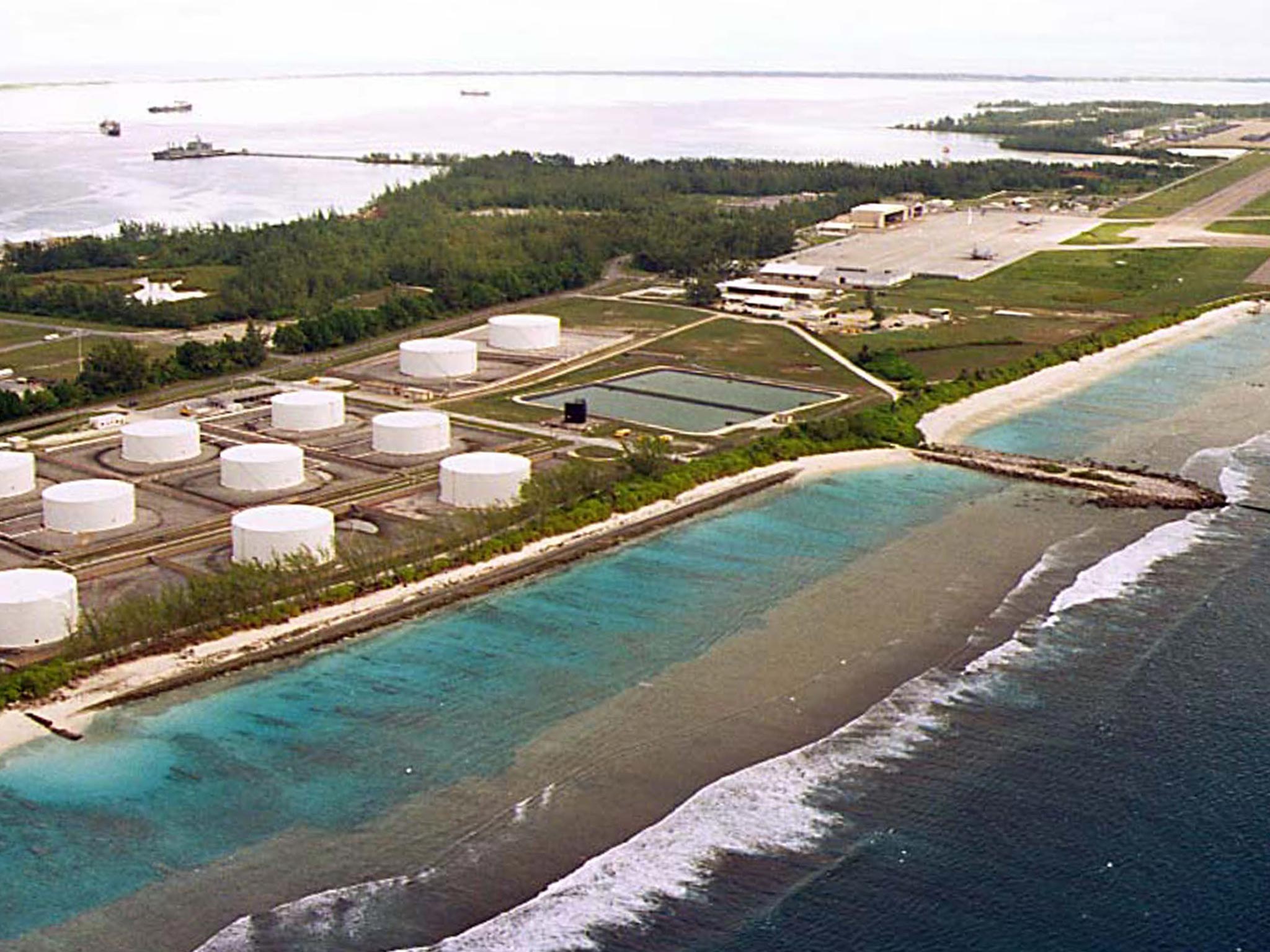Exclusive: British Government under fire for pollution of pristine lagoon
The FCO has admitted that British 'no discharge policy' was not complied with by US vessels

Your support helps us to tell the story
From reproductive rights to climate change to Big Tech, The Independent is on the ground when the story is developing. Whether it's investigating the financials of Elon Musk's pro-Trump PAC or producing our latest documentary, 'The A Word', which shines a light on the American women fighting for reproductive rights, we know how important it is to parse out the facts from the messaging.
At such a critical moment in US history, we need reporters on the ground. Your donation allows us to keep sending journalists to speak to both sides of the story.
The Independent is trusted by Americans across the entire political spectrum. And unlike many other quality news outlets, we choose not to lock Americans out of our reporting and analysis with paywalls. We believe quality journalism should be available to everyone, paid for by those who can afford it.
Your support makes all the difference.The British Government has been implicated in the pollution of a protected lagoon on the military base of Diego Garcia following allegations that human sewage was dumped from a vessel chartered to help protect the environment on the UK-owned Chagos Islands, The Independent can reveal.
A report by a scientific adviser to the Foreign and Commonwealth Office written last year, which the Government refused to disclose, suggests that the Pacific Marlin, an ageing tug hired by London used to patrol the British Indian Ocean Territories (BIOT), had been discharging waste while docked in waters shared with US Navy vessels.
The Independent revealed earlier this month that American ships have been pouring waste including treated human sewage for three decades into the lagoon on British-owned Diego Garcia, which has served as a key strategic base for the US since the 1970s.
The British Government has repeatedly underlined its commitment to maintaining the pristine environment of the Chagos Islands after it forcibly removed hundreds of inhabitants from Diego Garcia to make way for American forces, including nuclear bombers and submarines. In 2010, the islands were declared the world's largest marine nature reserve but Diego Garcia was excluded from the zone and its strict environmental rules.
The FCO has admitted that British "no discharge policy" was not complied with by US vessels.
But in a statement to Parliament on 6 March it failed to disclose the claims that the Pacific Marlin, a 36-year-old Japanese tug which is chartered from a Singapore-based company to conduct duties including fishery patrols and operations with Royal Marines, may also have contributed to the problem.
Swire Pacific Offshore Operations Ltd, which operates the Pacific Marlin, told The Independent that it had modified the vessel to ensure there could be no accidental discharges of sewage but said it had not been shown any evidence that it was responsible for elevated levels of faecal bacteria found near its vessel.
Professor Charles Sheppard, a leading biologist from the University of Warwick, who acts as scientific adviser to the BIOT on environmental matters, reported last year that its patrol vessel was "a regular culprit in terms of sewage discharge" on Diego Garcia.
The report was withheld by the FCO until this week on the grounds that its disclosure could damage Anglo-American relations until it was challenged by another academic and forced to disclose the material under environmental information rules.
Prof Sheppard wrote that the suspected discharges were going into "the very confined small boat basin in Diego Garcia where pathogen effects may be magnified" and also leading to criticism of double standards from Britain's closest ally. He said: "Comments have been received from several sources along the lines of 'if the British ship continues to do this then why shouldn't US ships?"
Tests have found levels of nutrients such as nitrogen and phosphates up to four times higher than normal levels in the lagoon, meaning damage may be being caused to coral on Diego Garcia.
Peter Sand, a lecturer in environmental law at Munich University who secured the release of Prof Sheppard's report, told The Independent that the island, which is home to about 5,000 US personnel, should be brought into the marine reserve.
He said: "The declaration of the reserve will remain an empty shell as long as it totally excludes the Diego Garcia military base. This may explain the desperate attempts by the Foreign Office to prevent public access to all embarrassing pollution data concerning Diego Garcia."
Swire Offshore said had a policy of discharging sewage at least four miles offshore but it had been advised by the FCO in June last year that "abnormally high levels" of faecal bacteria had been found in water samples taken near its vessel.
In a statement, the company said: "Although there was never any evidence that this fecal coliform had emanated directly from Pacific Marlin, as a preventative measure, the discharge valves were overhauled to prevent any sewage accidently seeping overboard."
A FCO spokeswoman said: "Procedures are now in place to ensure discharges do not take place from the Pacific Marlin while in Diego Garcia. The vessel spends the vast majority of its time out on patrol, with time in port usually a matter of hours to allow crews to change. Given it is also a relatively small vessel, that means the impact of any discharges in the past is likely to have been minimal."